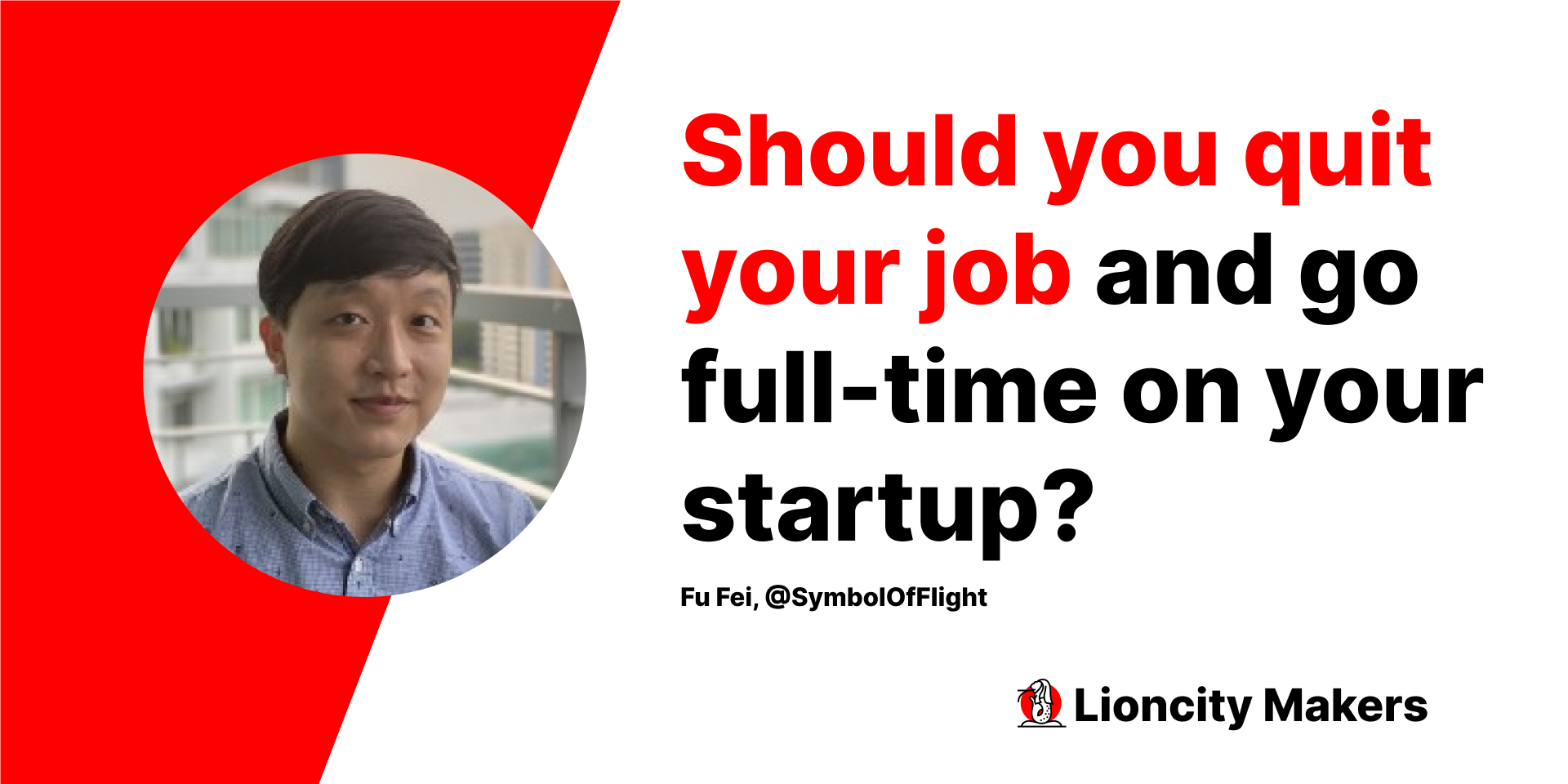
How I decided: Should you quit your job and go full-time on your startup?
Spoiler alert: I chose to work on my startup on nights and weekends rather than quit my full-time job.
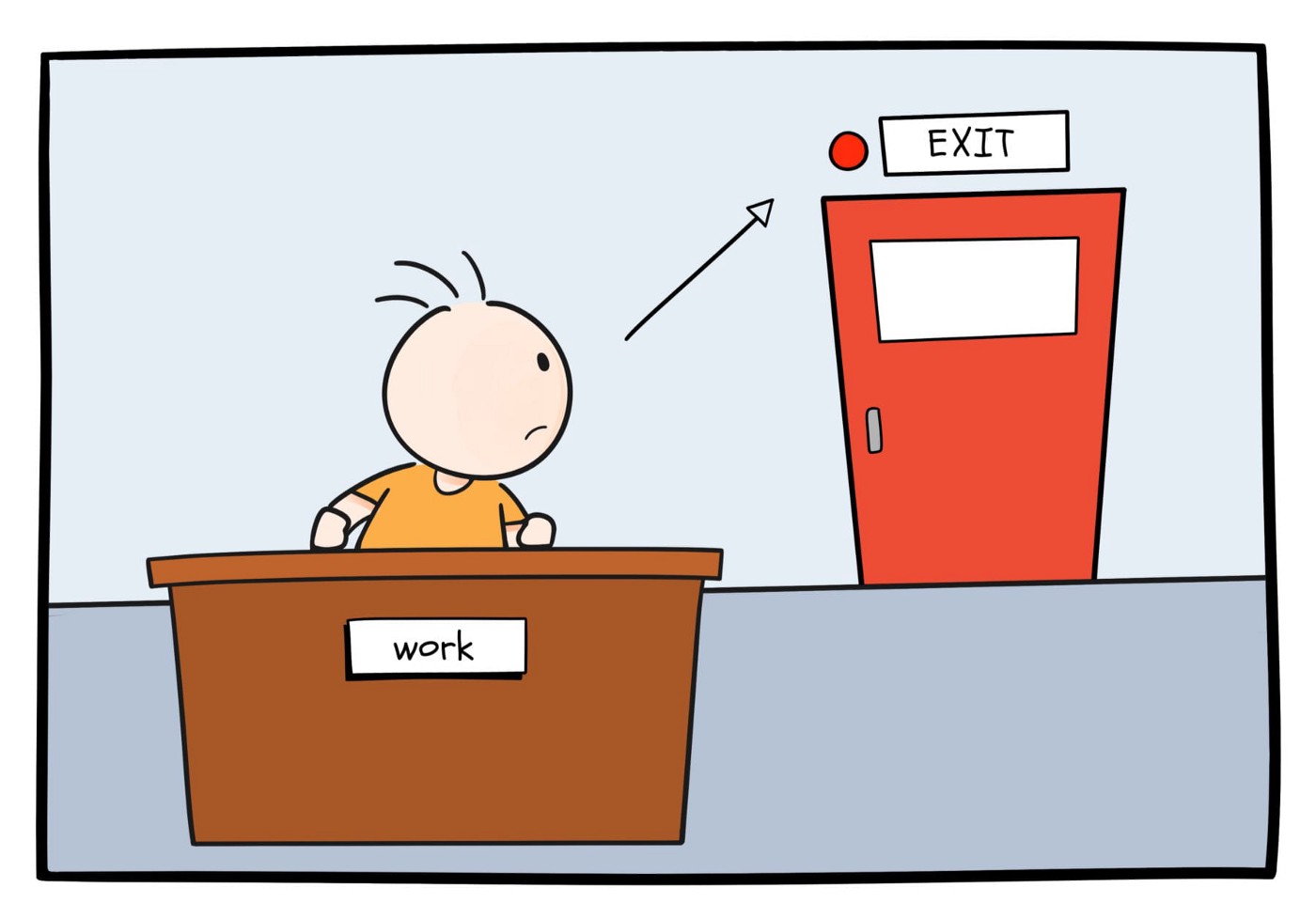
This is the framework I used to make my personal decision and how I plan to de-risk my bets.
Factors to consider
- Why entrepreneurship?
- Long Term Financial Goals
- Short Term Financial Constraints
- Difficulty of the Problem
Desired Quality of Life
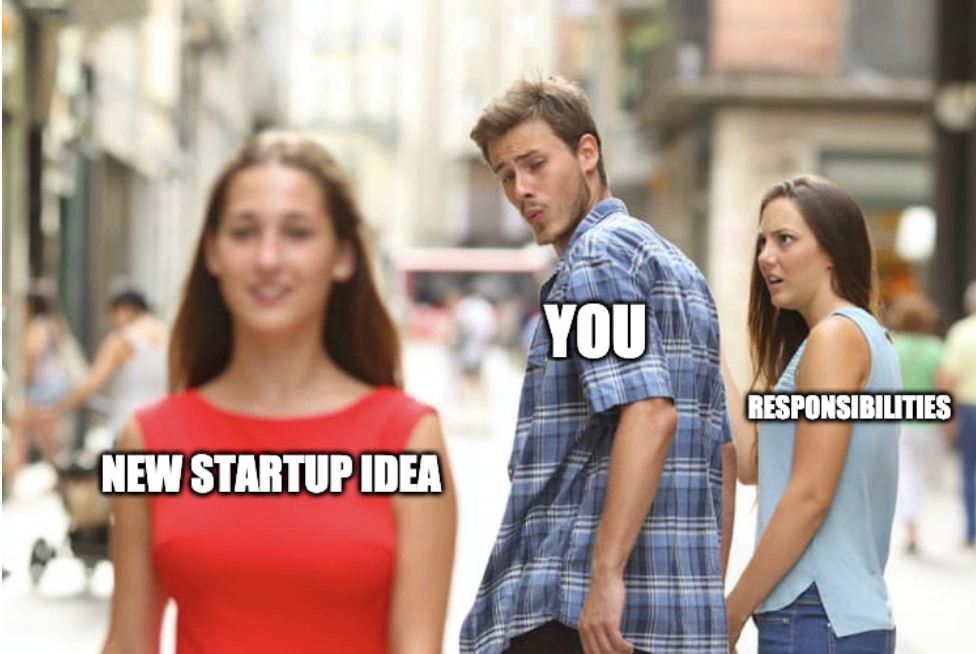
Why entrepreneurship?
Addiction to challenge
I’ve had the “wonderful” opportunityof launching and shutting down multiple products in my first startup and even though failure sucks, the challenge is quite addictive.
The drive to learn and improve every single day gave me quite a rush (and quite a bit of stress), but I actually enjoyed the challenge.
Personal goal
I’ve repeated this every job interview I’ve ever had.
My personal goal is to look back one day at a suite of products and say…
“Hey, I helped build that”
As a full-time product manager, I’m blessed. I get to do that every single day, but the rush just isn’t the same.
Long Term Financial Goals
If you want to be a billionaire, this “nights and weekends” thing probably isn’t going to cut it. You HAVE to target a fast-growing market that’s attracting lots of new entrants or you are tackling a problem that is EXTREMELY technically difficult.
I don’t need to be a billionaire.
I just want to be wealthy enough not to have to worry about money💰 + I get to work on projects that I find interesting.
Let’s say $150K a year
I haven’t really worked out my lifetime financials on this but in a place like Singapore 🇸🇬, that puts me in the >60th percentile.

Yeap. Singapore is an expensive place to live.
(Btw, for context, $150k SGD = $112k USD)
Let’s leave that target as $150k SGD as a goal for now. Money aside, the main driving factor here is really the ability to work on projects that I’m interested in.
By the way, apparently, I’m not alone.
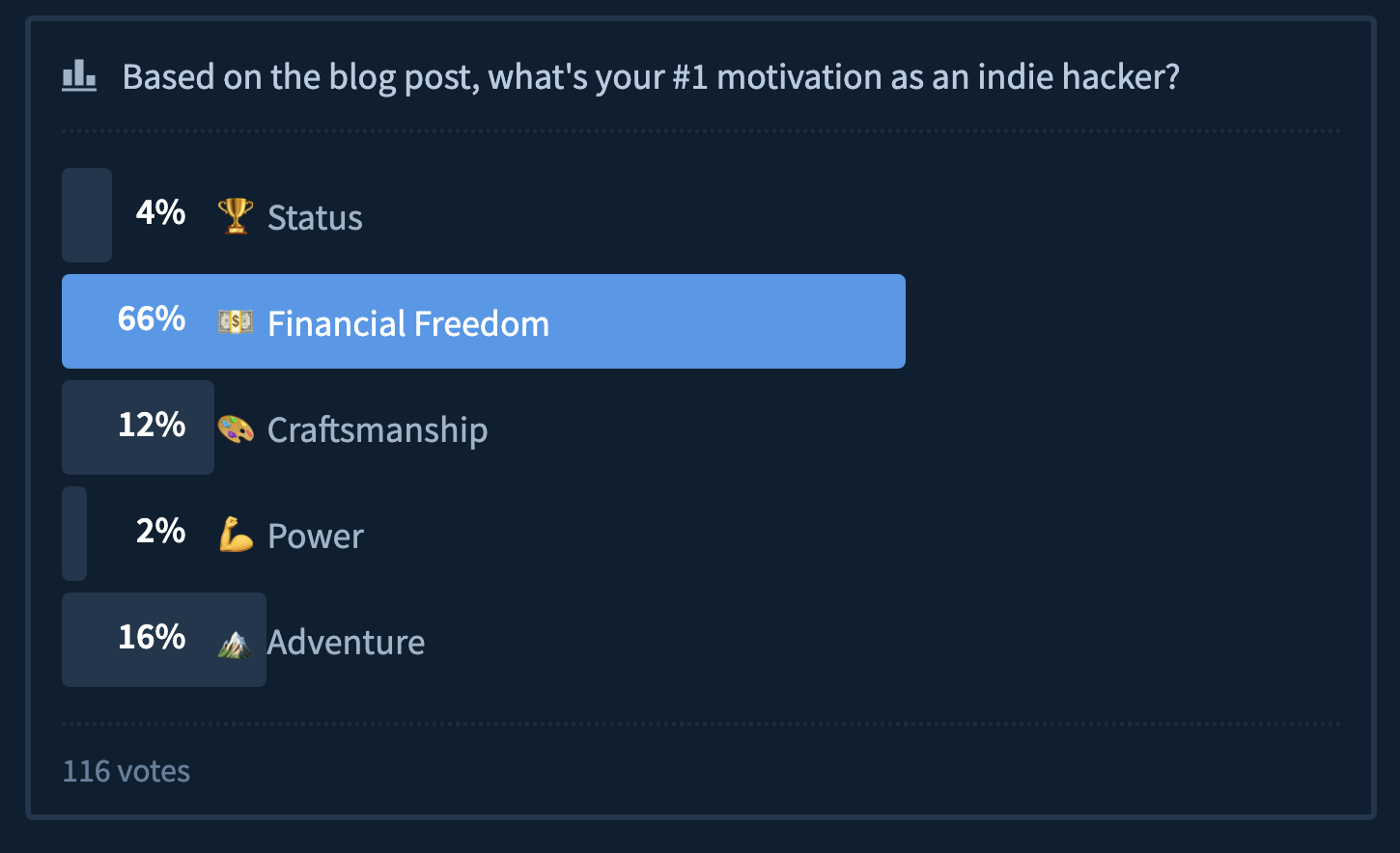
Random poll on Indie Hackers
Short Term Financial Constraints
Snap back to reality~

At this point in my life, I just can’t deal with the financial pressure of losing my main income stream.
Here are the major expenses that are coming up within the next 18 months:
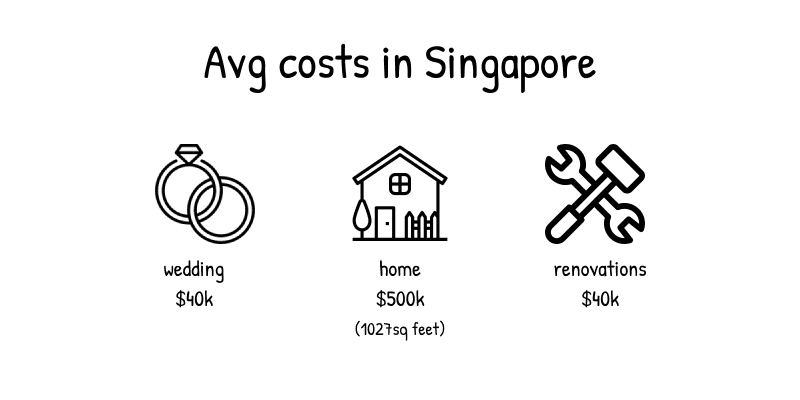
So…these are my constraints.
Difficulty of the problem
I know that founders tend to fall in love with their solutions to problems so you might skip this section but…
Don’t pick a difficult problem 😢
A difficult problem is one that…
- Is too technically challenging (e.g. a new database)
- Requires you to be on customer support for >40 hours a week
- Customers are too hard to reach (requires 10 calls a day)
- Is mission-critical to customers (they will 📞 you when your app is down)
I don’t plan on tackling any of the above. It’s a SaaS application. There are tons of those. Not extraordinarily difficult to build and/or acquire my first customers.
Desired Quality of Life
If you are striving for a work-life balance, this is going to be hard. Even if you quit your job to focus on your startup, it’s going to be all-consuming.
Working on your nights and weekends isn’t much easier.
Here is what my time distribution roughly looks like for the last few weeks:
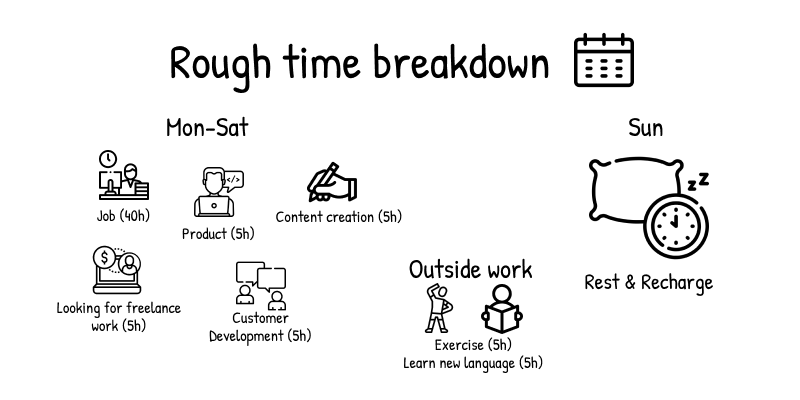
Still need to squeeze in time for content distribution and sourcing for customers to interview~
Not exactly the 100+hours that Elon does, but, I’m not trying to be a billionaire.
Anyway, my point is, it’s not like you have much of a work-life balance either way. If you are looking for that right now, you might want to consider starting next year instead.
How I plan to de-risk my bets
1. Got a Co-founder
Thankfully, I have an amazing co-founder that’s willing to do most of the technical legwork.
I don’t want to give useless advice like “Find a co-founder” to help. I will write a future post about this in the near future and add the link here.
2. Freelance
If your employer allows it, I highly recommend looking for opportunities to pick up new skills and get paid for them outside of work hours.
This isn’t just trading time for money (e.g. translation services or graphic design work), try to use time outside of work to save up money and pick up new skills that you will need in your entrepreneurship journey.
By the way, I freelance on Toptal. (Email me if you want a referral)
3. Milestone-Based: Leveling Up
You don’t have to quit your job on day 1, but you should discuss what would be the next steps if it shows some traction.
Set milestones that you and your co-founder(s) can agree on. Preferably revenue-based milestones.
When would it be enough to commit more time to this side project? When would it be enough to quit your full-time job?
Hope you enjoyed reading this. 💕
I write about our lessons building avopos.
If you like posts like this, consider subscribing here 👍
Article by Fu Fei
